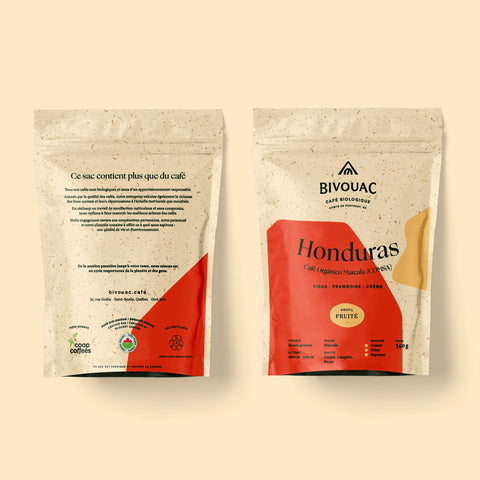
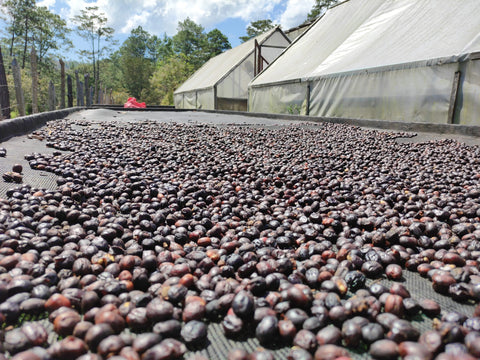
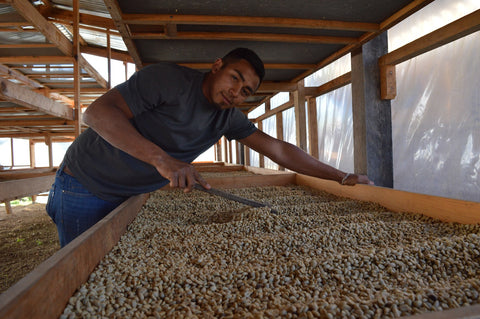
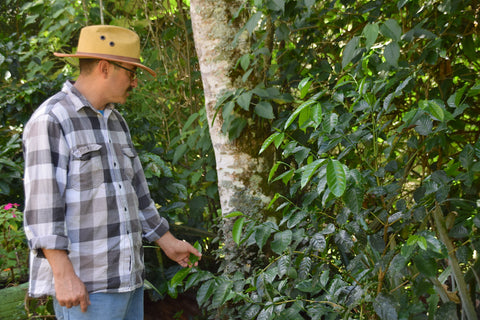
Honduras | COMSA
- Coop : Café Orgánico Marcala (COMSA)
- Region : Marcala
- Process : honey process
- Altitude : 1200-1750 m
- Variety : Catuai, Lempira, Pacas
- Organic coffee certified by Ecocert Canada
- Bird Friendly® certified coffee
- Fair Trade Proof
Filter. Espresso.
17.5g (in)
39g (out)
25 sec.
About the producers' cooperative:
Café Orgánico Marcala (COMSA) was founded in 2001 with the goal of creating new and alternative development opportunities for small coffee producers in the Marcala region of Honduras. The organization originally consisted of about 60 farmers who wanted to sell their coffee collectively under the umbrella of a rural credit union. At that time, the predominant production system in the area used conventional (chemical) practices and sold to local hucksters, often at prices that did not even cover the farmers' production costs. One of COMSA's main founding goals was to seek and promote new ways of thinking - both in production, moving from conventional to organic production; and in markets, moving from commercial to specialty buyers.
Over time, COMSA staff and members have learned and experimented with new and innovative practices to transform their land into integrated organic farms - promoting soil and water conservation, and preservation of local flora and fauna. They began to see improvements in coffee yields, better family relationships and rapid growth in COMSA membership.
In 2016, COMSA launched Diplomado Organico, an intensive training program that not only teaches innovative organic farming techniques, but also helps broaden small farmers' perspectives on the relationship between their work, the ecosystem and the health of communities on both sides of the supply chain. Today, the cooperative is a model and leader in effective and regenerative organic practices that improve both productivity and coffee quality.
COMSA's values, their concern for the environment and quality are absolutely in line with Bivouac's vision!
This high quality green coffee has unique regional characteristics. Once roasted in our workshop, it develops notes of fig and raspberry. Because it comes from the honey drying process, it has a natural sweeter side that we simply love.
During the honey process, once the coffee cherry is harvested, the pulp of the fruit is only partially removed: part of its flesh, the mucilage, is kept. A different result will be obtained if more or less mucilage is left around the coffee beans. It is this substance (mucilage), after drying in the sun and “caramelized”, that gives the coffee a naturally sweet taste.
In March 2019, Melanie (owner of Bivouac) visited several COMSA cooperative producers with Cooperative Coffees in Honduras. Since then, importing and roasting specialty beans from their best batches is a pleasure renewed with each harvest and gives meaning to our work!
